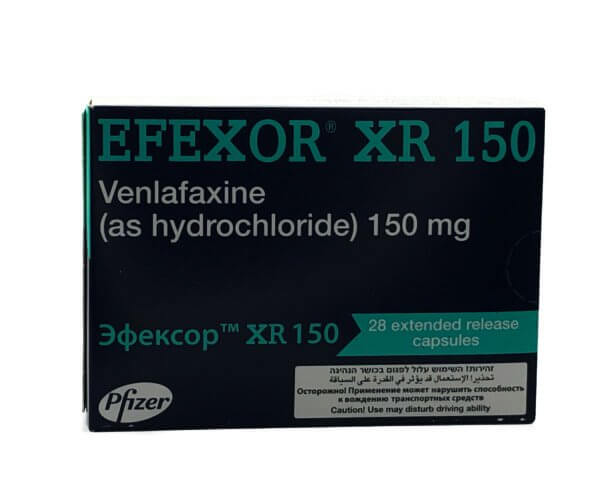Effexor XR / Viepax XR / Venla (
venlafaxine hydrochloride extended-release) is an
antidepressant medication primarily used to treat major depressive disorder in adults. It belongs to the class of drugs known as Serotonin-Norepinephrine Reuptake Inhibitors (SNRIs). The exact mechanism by which venlafaxine alleviates depression is not fully understood, but it is believed to involve the increase of serotonin and norepinephrine levels in the brain, neurotransmitters associated with mood regulation. By inhibiting their reuptake, venlafaxine enhances neurotransmitter activity, which may contribute to mood improvement. It’s important to note that untreated depression can persist or worsen over time, making effective treatment crucial. Effexor is not intended for use in children or adolescents under 18 years of age. For more detailed information on venlafaxine, refer to the National Library of Medicine.
Dosage and administration
Effexor is typically administered with a starting dose for adults is 75 mg per day, divided into two or three doses. Depending on the patient’s response and tolerability, the dose may be increased by the prescribing physician. It’s essential to take Effexor with food to enhance absorption and reduce the risk of gastrointestinal discomfort. If a dose is missed, it should be taken as soon as remembered. However, if it’s almost time for the next scheduled dose, the missed dose should be skipped to avoid doubling up. Patients are advised not to discontinue Effexor abruptly without consulting their healthcare provider, as this may lead to withdrawal symptoms.
Storage
Effexor should be stored at room temperature, typically between 20-25°C (68-77°F). It is important to keep the medication in its original packaging to protect it from moisture and light. Ensure that the bottle is tightly closed when not in use.
Common Questions About Effexor XR
Can Effexor be stopped abruptly?
Abruptly discontinuing Effexor is not recommended, as it may lead to withdrawal symptoms such as agitation, confusion, and sensory disturbances. If discontinuation is necessary, a healthcare provider will typically recommend a gradual tapering of the dose to minimize potential withdrawal effects. Patients should follow their provider’s guidance closely during this process.
What is Effexor used for?
Effexor is primarily prescribed for the treatment of major depressive disorder (MDD) in adults. It may also be used
off-label for conditions such as generalized anxiety disorder, social anxiety disorder, and panic disorder, depending on the healthcare provider’s assessment. The medication works by affecting neurotransmitters in the brain that influence mood and emotional states.
This text is for informational purposes only. Please consult a doctor or pharmacist before using any medication.
Read the information leaflet that comes with the medication.
Most people who use Effexor do not experience any adverse side effects. Doctors prescribe this medication because they assess the benefits of such treatment outweigh any likely unwanted effects.
Some of the side effects that have been reported include nausea, dizziness, dry mouth, sweating, and insomnia.
Serious side effects requiring immediate medical attention include increased blood pressure, seizures, and signs of serotonin syndrome, such as confusion, hallucinations, and rapid heart rate. Effexor XR carries a black-box warning due to the increased risk of suicidal thoughts and behaviors in children, adolescents, and young adults. Patients and their families should monitor for any worsening of depression or emergence of suicidal thoughts, especially during the initial treatment period or when doses are adjusted.
Not all side effects are listed here. If these or other unlisted symptoms persist or worsen, consult a healthcare provider or pharmacist.
Effexor is FDA-approved for the treatment of major depressive disorder (MDD) in adults. MDD is characterized by persistent feelings of sadness, loss of interest in daily activities, changes in appetite and sleep patterns, and difficulty concentrating. While Effexor is not approved for use in children and adolescents under 18 years of age, it may be prescribed off-label for other conditions in adults, such as generalized anxiety disorder (GAD), social anxiety disorder, and panic disorder. These conditions involve excessive worry, fear of social situations, and sudden episodes of intense fear, respectively. The use of Effexor for these off-label purposes should be determined by a healthcare provider based on individual patient needs.














